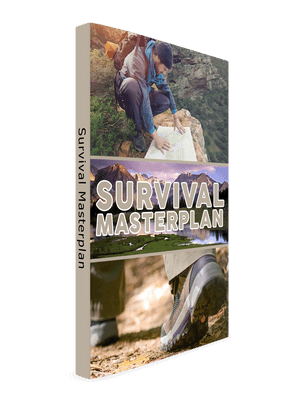
President Donald Trump (left) and Arizona Governor Doug Ducey disembark from Air Force One upon arrival in Phoenix, Arizona, on June 23, 2020.
SAUL LOEB / AFP
-
President Donald Trump arrived this afternoon in Phoenix, Arizona, for a campaign rally, despite surging coronavirus infections in the state.
-
There are no plans to require masks at the rally tonight at Dream City Church, which can seat up to 3,000 people.
-
Experts worry the rally could be a superspreader event. “It is a pretty nervous moment in Arizona right now,” ER doctor Murtaza Akhter told Insider.
-
Scottsdale resident Jimmy Flores told ABC 15. there are still many locals “that are ‘A’ personalities, they’re the ones that are pressuring others to go out and enjoy life.”
-
Visit Insider’s homepage for more stories.
Video: How long will social distancing last?
Arizona reported a single-day high of 3,591 new coronavirus cases on Monday, just one day before President Donald Trump’s arrival at a Students for Trump rally in Phoenix.
The state has been grappling with a continued spike in infections since early June, two weeks after lockdown orders were lifted on May 15. Republican Governor Doug Ducey has continued to avoid mandating face masks and, up until Wednesday, attributed the rising numbers to increased testing.
Last week, in response to pressure from Arizona mayors —and an open letter from 900 medical providers — Ducey reversed course and said local officials could mandate masks and other protective steps.
President Trump talks to reporters as he departs for his rally in Phoenix, Arizona, on June 23, 2020.
Reuters
But his about-face is likely too late to reverse the trend. And there are no plans to have a mandatory mask requirement at Trump’s rally tonight at Dream City Church, which can seat up to 3,000 attendees.
The spike in infections, lack of mask-wearing, and the arrival of thousands of Trump supporters have Arizona physicians concerned the rally could become a superspreader event.
Like Ducey, Trump has claimed the increasing numbers are a result of more testing, but Murtaza Akhter, an emergency room doctor at Phoenix’s Valleywise Health Medical Center, says that’s a misconception.
“Yes, testing causes more positive cases, but that doesn’t mean the percentage of COVID-positive people would necessarily go up,” Akhter told Insider. “Widespread testing should actually lead to even more negative cases because it includes asymptomatic and symptomatic patients.”
Story continues
The trend in Arizona is actually moving in the opposite direction.
“The numbers are spiking upwards,” Akhter said. “We are doing more testing but we’re having a lot more positive cases proportionally and that’s very concerning for COVID spread throughout the community.”
Akhtar describes the past week in the ER as “horrid.”
“It was worse than I expected and there is a lot more volume than I was seeing a few weeks ago,” he said.
And Akhter isn’t seeing any one type of patient. “Whether you’re male or female, young or old, Caucasian or Hispanic, literally everyone has been a patient of mine,” he said.
The increased caseload means there’s a real risk that resources could run out. According to the Arizona Department of Health Services, ICU beds and ventilators for COVID-19 patients are being used in record numbers in hospitals across the Phoenix-Scottsdale area.
“It is a pretty nervous moment in Arizona right now,” Akhtar said.
Despite the numbers increasing and resources depleting, the gravity of the situation doesn’t seem to be sinking in for many.
Jimmy Flores, 30, was hospitalized with COVID-19 after going bar-hopping in Scottsdale two weekends ago.
“It was a joke to us, man,” Flores told ABC 15. “I just was like ‘yeah, I’m not going to get it.'”
Crowds of young people have been filling bars in the city’s bustling Old Town since Memorial Day. According to the state health department, Arizonans ages 20 to 44 now represent the largest coronavirus demographic.
“You’re going to see those types of people still, that are ‘A’ personalities, they’re the ones that are pressuring others to go out and enjoy life or ‘don’t worry about it,’ blah, blah, blah,” Flores said.
Part of the problem has been the inconsistent messaging people have been receiving, with mayors standing off against the governor and the president. Akhtar says he has no patience for it.
“Regardless of what the government says or what the policy is, to say ‘I’m sick of it, I am going to congregate, to party, and be around people’ is a horrible idea.”
Benjamin Galaz owner of BK Carne Asada and Hot Dogs in Tuscon has seen first-hand how Arizonans have been dismissing the risks.
“This past week was crazy,” he told Insider. We were seeing groups of eight or more people who weren’t social distancing and only 20% wore masks. People were acting like the virus didn’t exist.”
Galaz was nervous, especially for his staff. They’re required to wear masks and pass temperature checks, but he felt like he couldn’t risk their safety. Galaz voluntarily closed down the restaurant on Thursday, though he’s continuing carry-out service.
“This isn’t about sales,” he said. “It is about community. When you have someone you know who passes away, you realize this isn’t a joke and it is serious.”
Read the original article on Insider






Leave a Reply